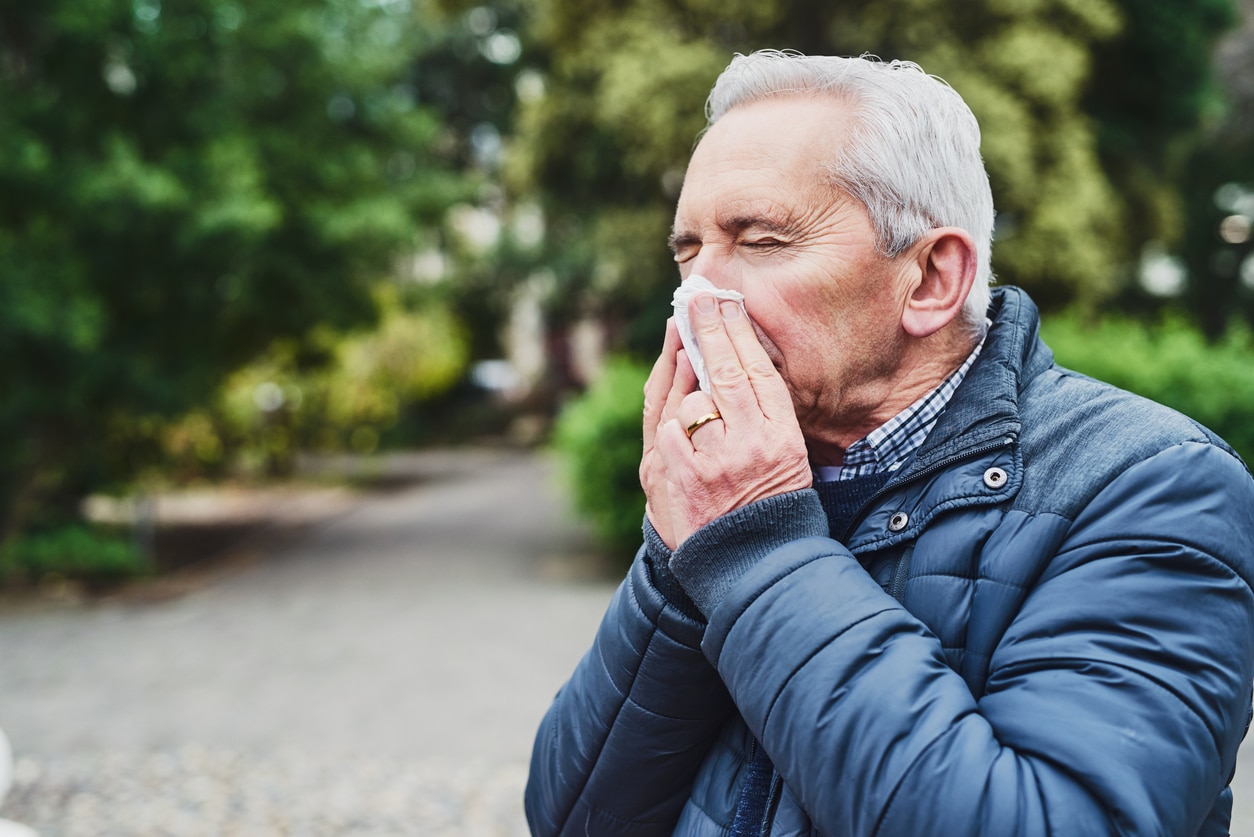The summer brings nice weather, fun in Hampton Park and maybe even a vacation. If you are prone to summer allergies from pollen or other allergens, knowing how to treat the side effects can help you manage them and have a stress-free summer.
One aspect of allergies to understand is their effect on chest congestion and breathing.
What Is Congestion?

Chest congestion occurs from mucus buildup, constriction and inflammation in the lungs. It is your body’s way of protecting itself from germs entering the airways. With congestion, you may hear crackling and wheezing in your lungs and have some trouble breathing, as well as a possible cough.
Congestion may also appear in the nasal passages due to physical obstruction from inflammation or mucus. Nasal congestion is a common side effect of allergic reactions and can cause a runny or stuffy nose and difficulty breathing.
Why Do Allergies Cause Congestion?
Your body deals with allergies by producing a chemical known as histamine as a response to allergens such as pollen or pet dander. The reaction can cause your lungs and airways to swell and produce mucus buildup leading to chest congestion. A couple more potential side effects may include:
- Itchy, watery eyes
- Itchy nose
- Sneezing
- Runny nose
- Rashes
- Hives (a rash with raised red patches)
- Stomach cramps
Avoiding allergens is one of the best ways to prevent allergic reactions. While some allergens are unavoidable, a couple of ways you can minimize contact include:
- Vacuuming and dusting frequently to prevent dust accumulation
- Closing windows during pollen season
- Bathing pets frequently to minimize dander
Treatment Options for Allergies and Chest Congestion
Mild chest congestion will, in most cases, resolve itself. Chest congestion due to allergies, however, is often treated by removing or avoiding the allergen. Some treatments for unavoidable allergic reactions include:
- Antihistamines
- Corticosteroids
- Decongestants
- Bronchodilators
An allergy specialist may also recommend immunotherapy, which involves introducing small doses of the allergen to a person over a period of time to reduce sensitivity.
Though chest congestion will likely go away on its own, a couple of home remedies include:
- Hot tea with honey and ginger
- Cough drops
- Drinking fluids
- Elevating the head slightly during sleep
If you are experiencing allergy symptoms, contact Charleston ENT & Allergy today to speak to an allergy specialist.
